Stick with the miners – this rebound is real
The bull market in commodities is here for the foreseeable future at least. That's good news for mining stocks. John Stepek explains why you should stick with them.

Get the latest financial news, insights and expert analysis from our award-winning MoneyWeek team, to help you understand what really matters when it comes to your finances.
You are now subscribed
Your newsletter sign-up was successful
Want to add more newsletters?

Twice daily
MoneyWeek
Get the latest financial news, insights and expert analysis from our award-winning MoneyWeek team, to help you understand what really matters when it comes to your finances.

Four times a week
Look After My Bills
Sign up to our free money-saving newsletter, filled with the latest news and expert advice to help you find the best tips and deals for managing your bills. Start saving today!

I went to a really interesting lunchtime meeting with a China expert earlier this week.
The discussion covered a lot of ground from China's political picture (potentially worrying) to the state of the banks (a mess, but can be handled it's hardly the first time China's banks have been in a state).
But the thing I was most interested in was the current commodity market rebound.
MoneyWeek
Subscribe to MoneyWeek today and get your first six magazine issues absolutely FREE

Sign up to Money Morning
Don't miss the latest investment and personal finances news, market analysis, plus money-saving tips with our free twice-daily newsletter
Don't miss the latest investment and personal finances news, market analysis, plus money-saving tips with our free twice-daily newsletter
Is the current rally the real thing? Or should we be taking any mining profits right now?
The reflation trade is here to stay
Why? It's partly about the banking system, infrastructure and supporting the Chinese economy. The country is pumping more money via loan guarantees, it amounts to about $750bn (7% of GDP) this year into big infrastructure projects, including the "One Belt One Road" new Silk Road project.
That lot will suck up a lot of raw materials.
More to the point, China's banking system would be helped a great deal by higher commodity prices. Lots of Chinese banks have made loans backed in some way by commodities or in commodity-related businesses. Reflating commodity prices helps to bail out the banking system, in much the same way as reflating the property market in the UK bailed out our own banking system.
A continuation of higher commodity prices should be good news for mining stocks. It may well store up trouble for a later date, of course, but in the meantime, central banks around the world will be happy enough to see their inflationary efforts aided by rising raw material prices.
So don't expect anyone to object. And if that means the US Federal Reserve keeping a close eye on the dollar to make sure it doesn't spring any nasty new strengthening surprises, then that's exactly what'll happen.
A reminder of the oil market's vulnerability to disruption
MoneyWeek
the likely impact of Saudi Arabia's plans for a future "beyond oil"
It's a very interesting piece, going into a fair bit of depth on the country's current succession issues, its "cold war" with Iran, and its much-touted plan to wean itself off its "addiction to oil". To cut a long story short, Matthew is sceptical.
Saudi Arabia has talked about plans to diversify in the past, but it hasn't amounted to anything so far. The real problem is that the country would need to relax its rigid social compact to make any genuine shift and that's not likely to happen. So Matthew reckons that, sooner or later, supply cuts will have to come and the oil price will have to head higher.
Yet it looks as though it might not be Saudi Arabia that makes the difference, but Canada.
The province of Alberta home to Canada's oil sands has been hit by a massive wildfire (around 40 square miles, apparently), which saw the entire city of Fort McMurray evacuated more than 80,000 people. (Thankfully, although 1,600 buildings have been destroyed, reports say no one has been killed or injured).
As Reuters reports, "major oil sands facilities were not in the path of the flames, but companies' efforts to help employees and evacuees and protect pipelines hit production". The fire has already knocked out 800,000 barrels a day of oil sands production and more than a million could be affected overall, reports Bloomberg. Oil prices both Brent and WTI rose by more than 2% yesterday in response.
Now, the Canadian cutbacks might not last for long. However, there are other signs of the market stabilising at a more fundamental level. Firstly, Iran has said that it will be happy to act in conjunction with oil cartel Opec once it is back up to pre-sanctions export levels which could be as soon as the next couple of months.
Secondly, the US Energy Information Administration reported this week that US crude output had fallen by 113,000 barrels a day (to around 8.8 million). "That's the biggest weekly drop since August 2015", noted Bloomberg.
That said, US crude inventories are still at record levels (or rather their highest level since 1929, at least). But the point is that companies and countries are clearly taking action to counter the glut and will continue to do so. Read Matthew's story to find out how you can play the rebound in the oil price.
Get the latest financial news, insights and expert analysis from our award-winning MoneyWeek team, to help you understand what really matters when it comes to your finances.

-
 Should you buy an active ETF?
Should you buy an active ETF?ETFs are often mischaracterised as passive products, but they can be a convenient way to add active management to your portfolio
-
 Power up your pension before 5 April – easy ways to save before the tax year end
Power up your pension before 5 April – easy ways to save before the tax year endWith the end of the tax year looming, pension savers currently have a window to review and maximise what’s going into their retirement funds – we look at how
-
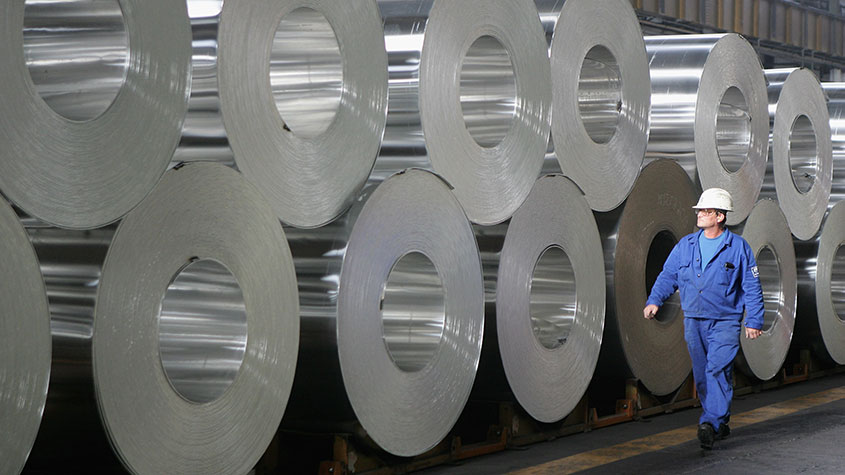 These 2 stocks are set to soar
These 2 stocks are set to soarTips The returns from these two aluminium and tin stocks could be spectacular when the commodity cycle turns says David J Stevenson.
-
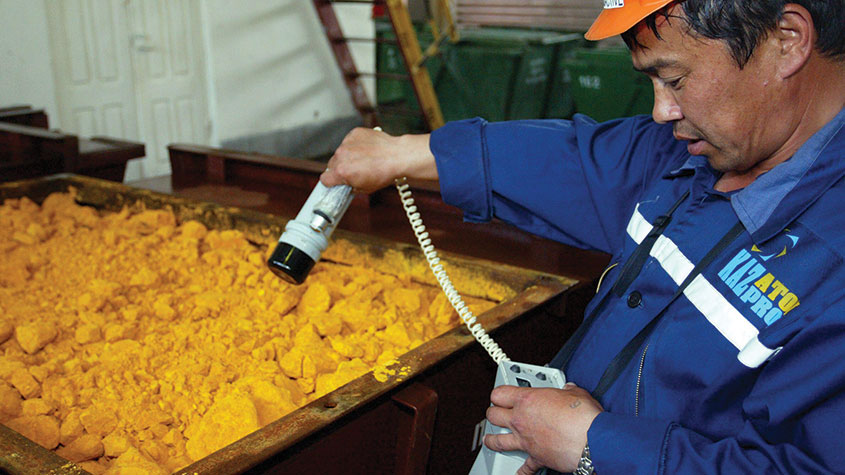 The best ways to buy strategic metals
The best ways to buy strategic metalsTips Weaker prices for strategic metals in the alternative-energy sector are an investment opportunity, says David Stevenson. Here, he picks some of the best ways to buy in.
-
 A lesson for investors from a ill-fated silver mine
A lesson for investors from a ill-fated silver mineAnalysis Mining methods may have changed since the industry’s early days, but the business hasn’t – digging ore from the ground and selling it at a profit. The trouble is, says Dominic Frisby, the scams haven't changed either.
-
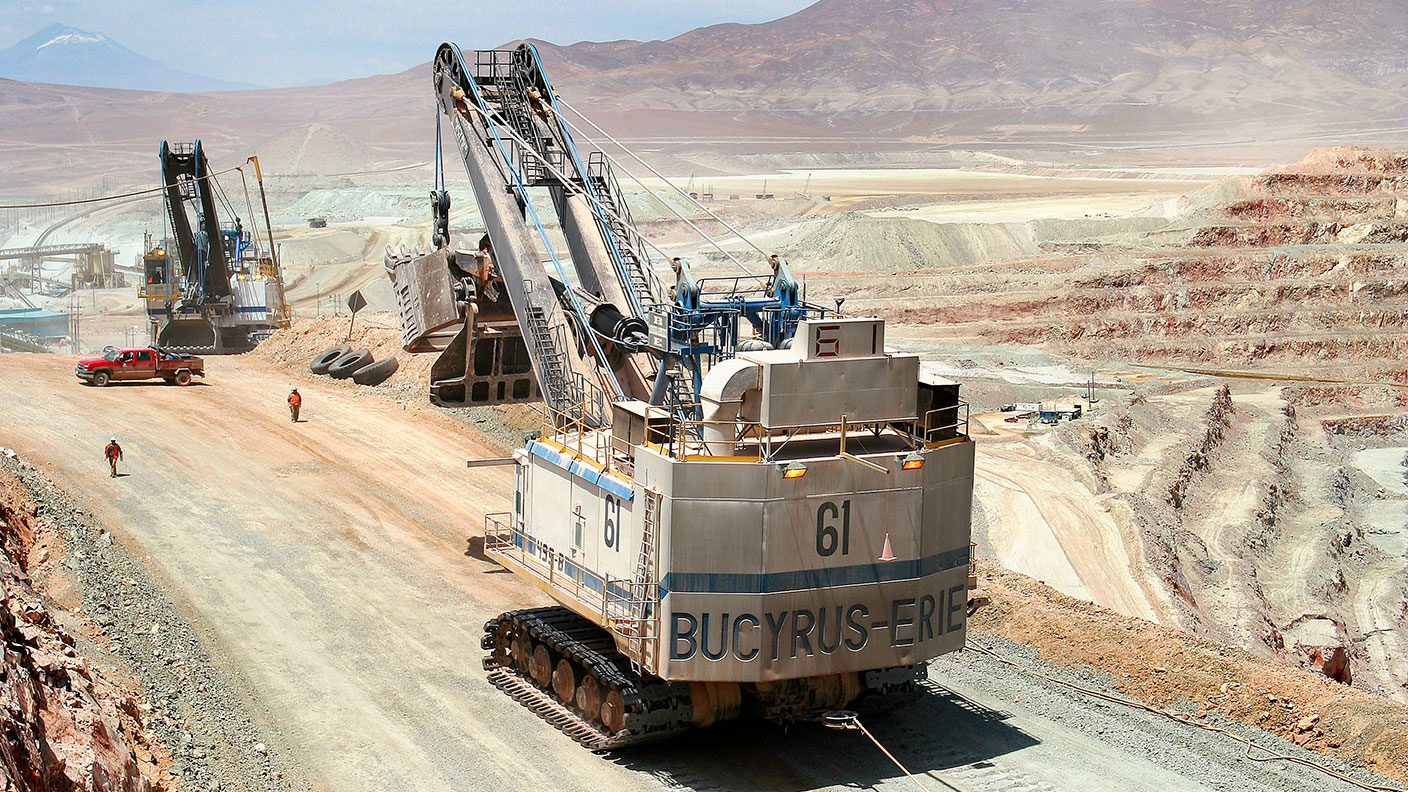 The natural resources industry is in a tight spot – which is bad news for the rest of us
The natural resources industry is in a tight spot – which is bad news for the rest of usOpinion The natural resources industry is in a bind. We need it to produce more energy and metals, but it has been starved of investment, plagued by supply chain issues, and hobbled by red tape. That’s bad news for everyone, says Dominic Frisby.
-
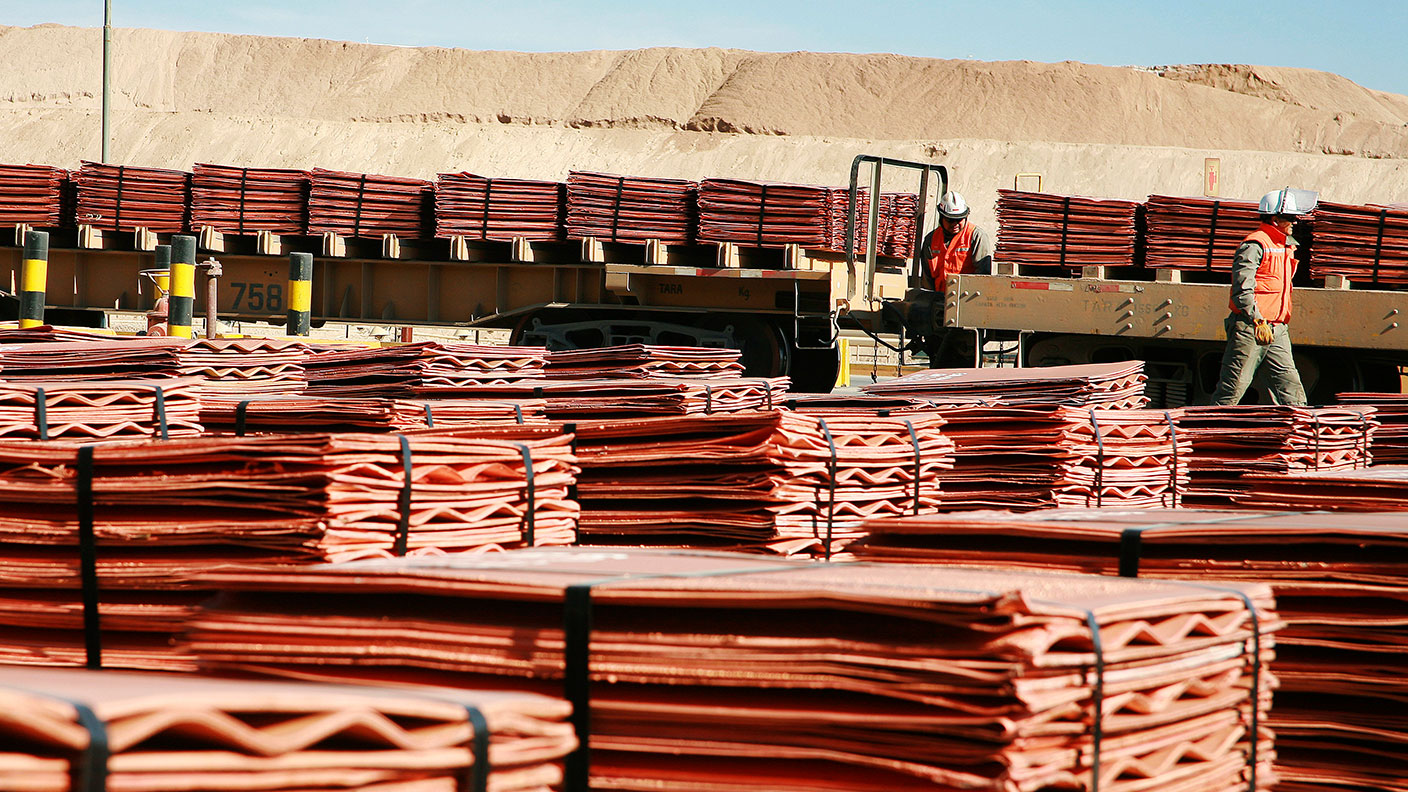 How to invest in the copper boom
How to invest in the copper boomTips The price of copper has slipped recently. But that’s temporary – the long-term outlook is very bullish, says Dominic Frisby. Here, he explains the best ways to invest in copper.
-
 Why investors should consider adding Glencore to their portfolios
Why investors should consider adding Glencore to their portfoliosTips Commodities giant Glencore is well placed to capitalise on rising commodity prices and supply chain disruption, says Rupert Hargreaves. Here’s why you should consider buying Glencore shares.
-
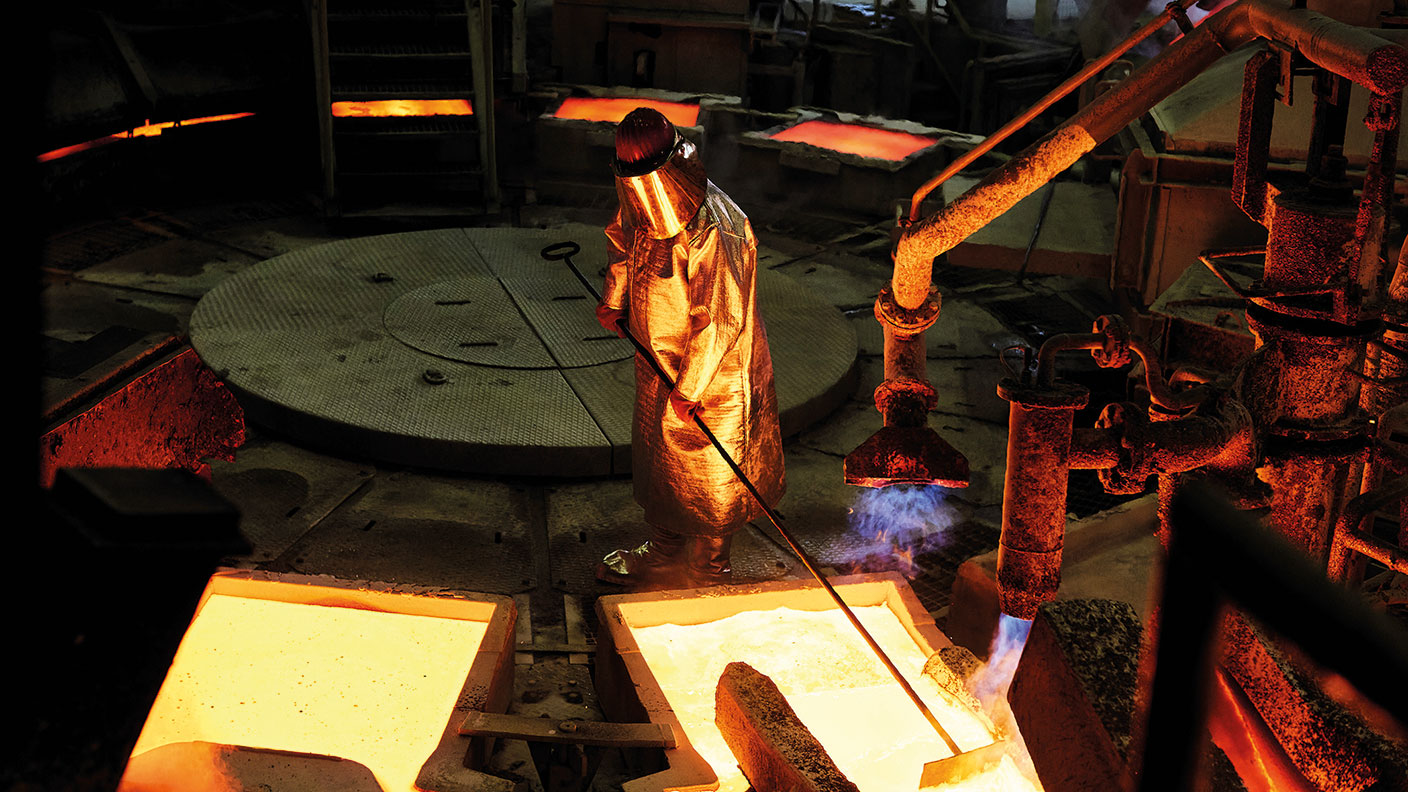 How to invest in the multi-decade boom in industrial metals
How to invest in the multi-decade boom in industrial metalsTips The price of key industrial metals has already begun to rise. The renewable energy transition will take them higher, says David Stevenson. Here's how to profit.
-
 Avoid China’s stockmarket – here’s what to invest in instead
Avoid China’s stockmarket – here’s what to invest in insteadOpinion China’s stockmarket is not a good place for investors to be. But you can't just ignore the world's second-largest economy, says Dominic Frisby. Here, he picks an alternative China play.